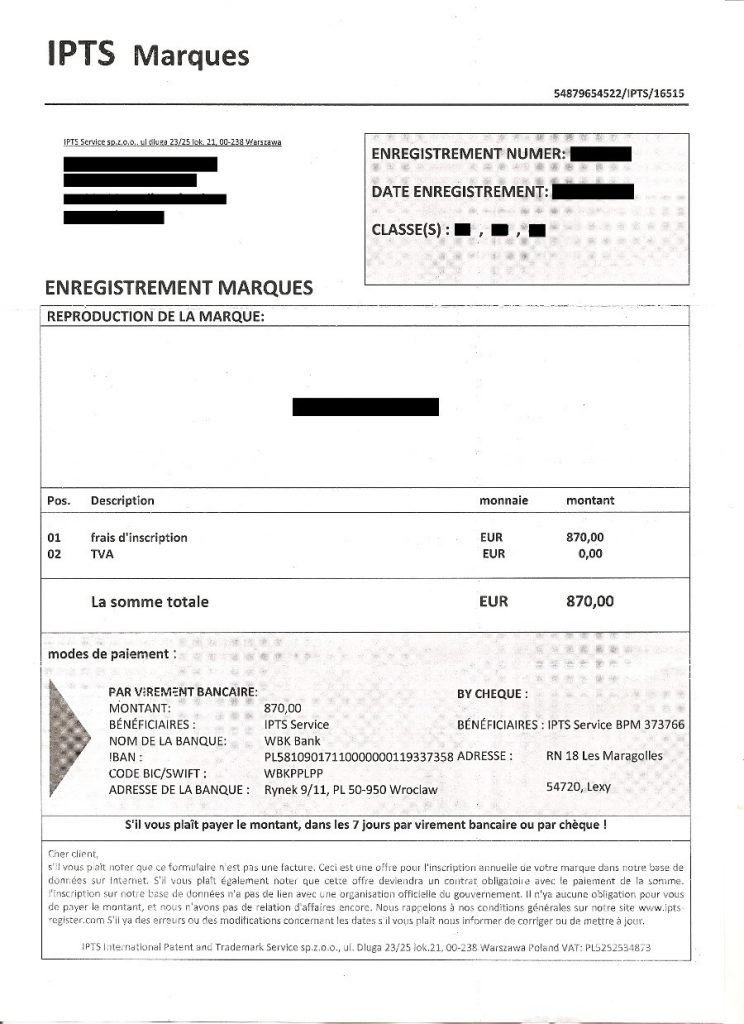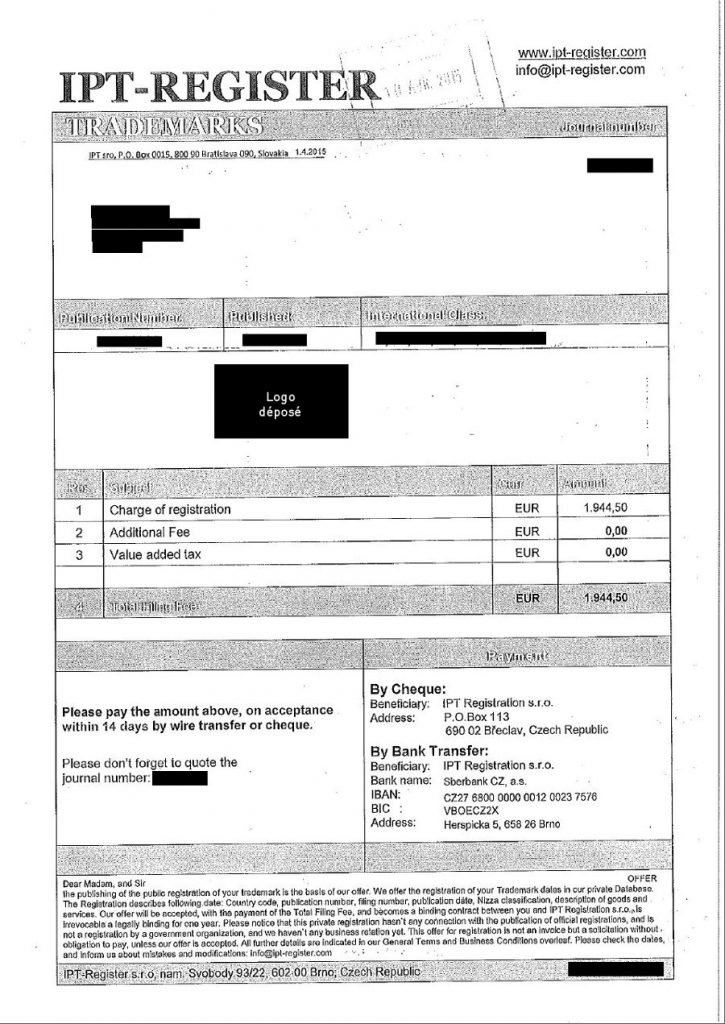Submitters: beware of fraudulent mail!
You have just filed your trademark and are now waiting for the INPI or EUIPO (the European Trademark Office) to inform you of its registration. Beware! That's when it's time, between filing and registrationthat you may be receiving fraudulent mail. They will ask you to pay very large sums of money for registering or publishing your trademark. Despite their official appearance, these companies have absolutely nothing to do with the offices that handle these procedures.
Indeed, when you paid the fees to the INPI, you paid the totality of the fees relating to the registration of your trademark, and this until its renewal in 10 years. It is of course possible that the INPI will contact you to correct an irregularity in your application. In this case, you will have to reply to this letter and proceed with payment.
To avoid falling into the trap of paying unjustified fees, learn how to recognize fraudulent mail.
Fraudulent mail? Check the name of the issuing agency
Scams are often well thought out and these companies give themselves an official appearance. They choose their names very well and make it look like they are public organizations. For example, depositors have received fraudulent mail from the following companies:
- ETP - European Trademark Register
- IPTR - International Patent and Trademark Register
- EMEA - European Trademark Agency
- IPOS - International Property Organisation Service
Some even push the vice to use official acronyms: "OHIM Office for international registration" thus uses the former name of the European Trademark Office (OHIM).
Nor can you rely on the addresses given. If initially these actions came from companies based mainly in Slovakia, this is no longer the case today. These letters are issued by companies domiciled all over the world: USA, Switzerland, Belgium, England, France... Fraudulent letters have even been sent by the "European Trademark Organisation S.A.", allegedly domiciled in the European Parliament!
Therefore, the first thing to do when you receive a letter of this type, is to check the name of the organization on the internet. If it is a scam, the name will probably be listed among the issuers of fraudulent mail. A simple Google search will usually identify these companies. EUIPO also offers a list of companies running these scams.
What are the amounts claimed in these fraudulent letters?
These letters are most often in the form of invoices. The price is often very high and the payment terms are short (usually between 7 and 14 days).
Direct debit is also a good clue to identify these fraudulent letters. Indeed, most of the time, the bank account where you have to make the transfer is abroad (Czech Republic, Hungary...).
Most often, the letter indicates in small print the consideration for your payment. It will most often be a matter of publishing your trademark in a private register. This publication has no legal value (only the official publications of the INPI or EUIPO grant rights). Moreover, this publication will not benefit your trademark at all, as these private registers are not accessible.
Don't pay! If you pay the bill, you will not be able to recover the money. The only thing to do is to ignore these letters.
Any doubt? Consult a professional
Are you having second thoughts about a letter you received? The company does not appear in the EUIPO list? The amount charged seems low to you?
If you are unable to determine whether or not it is fraudulent mail, don't hesitate to ask for professional advice.
It can indeed be an official letter from the INPI or a foreign office (in particular, if you have registered an international trademark). For example, the notification of an irregularity in your filing, or of an opposition launched by a third party. A trademark attorney will be able to confirm the official nature of the letter, and if you wish, prepare a reply for you.
It can also be a letter of formal notice sent by a competitor. In this case, it is also advisable to seek professional advice. Indeed, some competitors choose very aggressive wording to induce you to withdraw your trademark application. A representative can advise you on how to proceed, as these letters are not always justified.
For more information, you can read our article on good post-deposit practices to find out how to respond to external demands.


